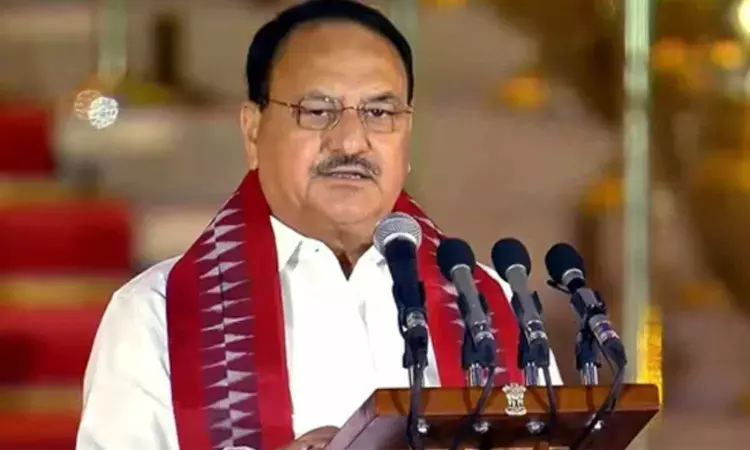- Home
- Medical news & Guidelines
- Anesthesiology
- Cardiology and CTVS
- Critical Care
- Dentistry
- Dermatology
- Diabetes and Endocrinology
- ENT
- Gastroenterology
- Medicine
- Nephrology
- Neurology
- Obstretics-Gynaecology
- Oncology
- Ophthalmology
- Orthopaedics
- Pediatrics-Neonatology
- Psychiatry
- Pulmonology
- Radiology
- Surgery
- Urology
- Laboratory Medicine
- Diet
- Nursing
- Paramedical
- Physiotherapy
- Health news
- Fact Check
- Bone Health Fact Check
- Brain Health Fact Check
- Cancer Related Fact Check
- Child Care Fact Check
- Dental and oral health fact check
- Diabetes and metabolic health fact check
- Diet and Nutrition Fact Check
- Eye and ENT Care Fact Check
- Fitness fact check
- Gut health fact check
- Heart health fact check
- Kidney health fact check
- Medical education fact check
- Men's health fact check
- Respiratory fact check
- Skin and hair care fact check
- Vaccine and Immunization fact check
- Women's health fact check
- AYUSH
- State News
- Andaman and Nicobar Islands
- Andhra Pradesh
- Arunachal Pradesh
- Assam
- Bihar
- Chandigarh
- Chattisgarh
- Dadra and Nagar Haveli
- Daman and Diu
- Delhi
- Goa
- Gujarat
- Haryana
- Himachal Pradesh
- Jammu & Kashmir
- Jharkhand
- Karnataka
- Kerala
- Ladakh
- Lakshadweep
- Madhya Pradesh
- Maharashtra
- Manipur
- Meghalaya
- Mizoram
- Nagaland
- Odisha
- Puducherry
- Punjab
- Rajasthan
- Sikkim
- Tamil Nadu
- Telangana
- Tripura
- Uttar Pradesh
- Uttrakhand
- West Bengal
- Medical Education
- Industry
DHR-ICMR 2024-29 Action Plan Aims to Boost Indigenous Innovation, Tackle Critical Health Challenges: JP Nadda

Health Minister Irfan Ansari is scheduled to meet with Union Health Minister JP Nadda in the coming days
Delhi: The Department of Health Research (DHR) -Indian Council of Medical Research (ICMR) announced the DHR-ICMR 2024-29 Action Plan for Viksit Bharat during the ICMR Governing Council Meeting that was presided by the Union Health & Family Welfare Minister, Shri JP Nadda. It is a comprehensive strategy aimed at transforming India's health sector over the next five years. This ambitious plan focuses on indigenous innovation, advanced research, and global collaboration to build a self-reliant and robust healthcare system capable of addressing the nation's most pressing health challenges.
Speaking on the occasion, Shri JP Nadda emphasized that “the DHR-ICMR 2024-29 Action Plan is a significant stride towards our vision of a Viksit Bharat”. He added, "By focusing on indigenous innovation, advanced research, and global collaboration, we are not only strengthening our healthcare infrastructure but also empowering our scientific community to lead on the world stage."
Dr Rajiv Bahl, Secretary DHR & DG, ICMR, stated, "The DHR-ICMR 2024-29 Action Plan for Viksit Bharat represents a significant step towards achieving self-reliance in healthcare. By investing in indigenous technologies, addressing critical health challenges, and promoting global collaboration, we aim to transform the health landscape of India. This plan not only addresses current health issues but also prepares the nation for future challenges through innovation and capacity building."
The DHR-ICMR 2024-29 Action Plan aims to transform India's healthcare ecosystem by focusing on six key areas: promoting indigenous and affordable health technologies; providing solutions for difficult and resistant health problems such as anemia, antimicrobial resistance (AMR), non-communicable diseases (NCDs), child malnutrition, and climate change impacts; advancing digital health solutions; ensuring research evidence translation into action; enhancing technology-driven surveillance and accelerating development of medical countermeasures and elevating India's global ranking in medical research thereby contributing significantly to medical advancements and improved health outcomes nationwide.
This comprehensive plan is expected to accelerate innovation, improve healthcare delivery, and position India as a leader in medical research and technology. It reflects the government's commitment to enhancing public health and underscores the vital role of research and innovation in achieving sustainable development goals.
Read also: Health Minister JP Nadda addresses 77th session of Regional Committee of WHO South East Asia


